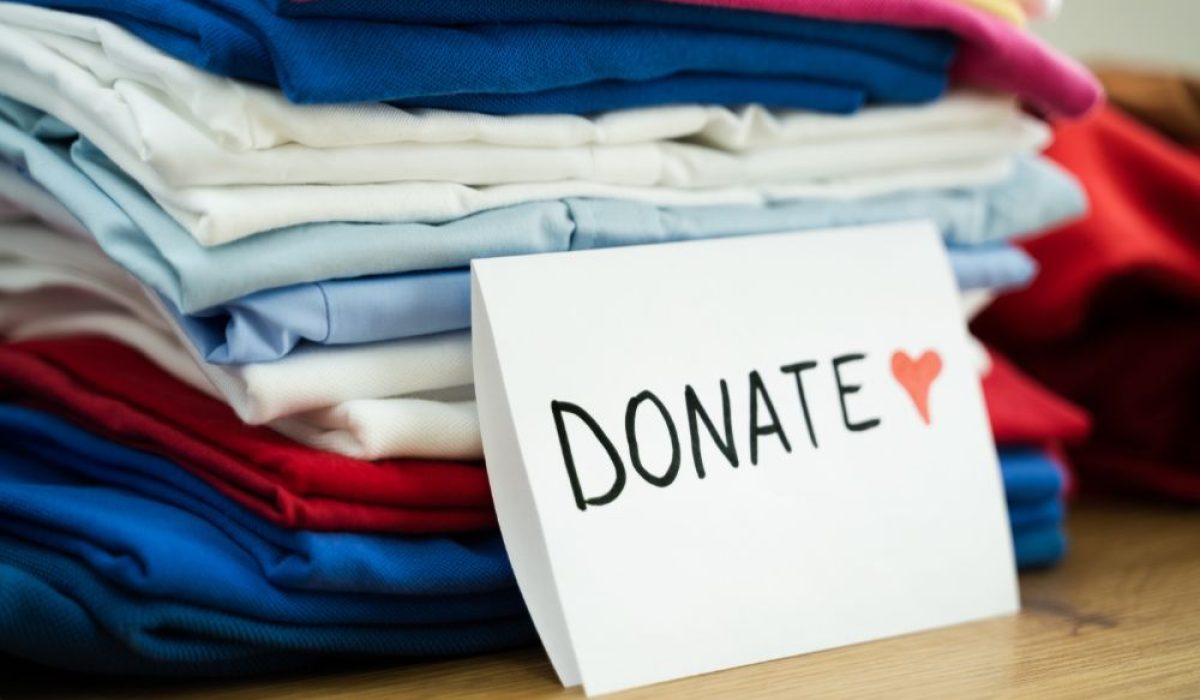Most everyone agrees that donating to charities whenever possible is a remarkable act. These organizations provide aid to those in need, and every ounce of support helps the charity’s mission. However, there are a few myths about the charitable donation process to debunk. Many donors assume that if they don’t have a lot to give, it doesn’t matter. Likewise, some people think all organizations are the same and accept anything. Broaden your understanding of these myths plus the truth about donating!
Small Donations Don’t Help
It’s easy to feel like your contribution is insignificant if you don’t have much to give, but this couldn’t be more wrong. Every donation you make helps someone else. Don’t believe us? Think about the last time you received a simple compliment such as “I like your shirt!” It wasn’t an over-the-top statement, but it helped brighten your mood.
Small donations also help motivate others. While you may only have a few garments to donate, a friend or fellow household member may feel inspired by your actions. This person may have more to give away. Best yet, this can cause a chain reaction of giving, all inspired by the act you worried was too small. In the charitable world, everything you give makes a tremendous change.
Donation Tip
Some of us may worry that donations under $20 don’t make a difference when donating money. Every dollar counts. Your $20 donation is money the organization can put towards funding its programs and continuing its mission to help the community.
You Can Donate Anything
While there are no small donations, that doesn’t mean you can give anything to every charity. Most organizations specify their focus area, which means collecting specific items. For instance, charities working to end food insecurity likely accept non-perishable food and monetary donations but don’t take clothing. However, a charity focused on homelessness may take clothing and food but may not accept other items, such as large furniture.
All Charities Are the Same
Although every charity strives to help others and make a difference in our world, saying they’re all the same is an overgeneralization. There are many different types of charity to understand as you decide how to help our society. Some common categories include:
- Animal-focused charities
- Humanitarian charities
- Senior-focused charities
- Clothing collection charities
Each of these charities focuses on assisting different areas of our society. Need help determining which one you want to help? Think about your values, then seek out charities that share them. So, if you love animals and the idea of every furry friend getting a home, search for animal-focused charities.
Bonus Tip: Picking the Right Charity
As you search for a charity to help, verify that the organization follows its mission. What fundraisers have they held recently? What are their top achievements? Are they transparent about how they spend monetary donations? Discovering all this helps you determine how reputable the organization is to ensure you support the right cause.
All Donations Are Tax-Deductible
Some charities don’t offer tax deductions for donors. Only 501(c) 3 organizations can do this. If the tax deduction is integral to your giving process, you can check a charity’s IRS status by calling them directly. Sometimes, this information is available on a charity’s homepage or website.
It’s also worth noting that you can’t deduct your entire contribution from your taxes. The amount that comes off can range from around 20 to 60 percent. So, what impacts this? The size of your donation and type of organization. Most private foundations have lower limits than public charities.
Donating Money Is Always Ideal
As many say, “cash is king,” but that doesn’t mean monetary donations trump all else. Plus, some charities don’t accept cash donations at all. Instead, these organizations focus on collecting physical items such as furniture, used vehicles, or clothing.
Often, giving money is the easiest option since it doesn’t require shopping around or sorting through your home to find specific belongings. On the other hand, you can give charities the necessary resources by directly donating these types of things—clothing, furniture, or food. Philanthropy isn’t just about money; it’s the act of helping others.
Fundraising Wastes Money
Another myth about the charitable donation process to debunk is that fundraising costs should remain as low as possible. It’s easy to assume that a nonprofit wastes money when sending letters, donating gifts, or holding events. After all, this price adds up quickly, but it’s an essential task. Furthermore, without fundraising, it’s hard to make the community aware of their presence, which means fewer donations.
Try viewing things differently. For instance, you’d feel proud if a local foodbank just announced they’ve moved to a larger building to accommodate more people. You wouldn’t think, “well, that’s a waste of money.” However, that move is only possible with generous donors, and most discover charities through fundraisers.
Donating Tip
If you worry an organization wastes too much money, evaluate how it spends it. Quality charities are transparent about this information, but you should always verify the numbers on an external website. For example, Charity Navigator and Charity Watch allow you to search an organization to view how they allocate their funds according to their required tax writeup.
Giving to Charity Is Time Consuming
Many of us live busy lives, and the thought of bringing donatable goods to an organization means spending time you may not have. Charities understand this and want to keep the process as simple as possible. So how do they do this? Organizations like Project B Green offer donation pick-up in Camp Springs, MD! All you have to do is place your donatable items into a bag or box, then contact us, and we’ll come to you to take things off your hands.
Changing Mindsets
Rather than see donating as another task to check off your list, view it as an opportunity. Sometimes we need a break from the hustle and bustle. Helping others makes us feel great because it releases endorphins. Search for local volunteer events you can join with friends, family, or coworkers. This is an excellent way to bond while also lending a helping hand. You can be the change you want to see in our world—it takes one person to start a chain reaction.



1 Comment